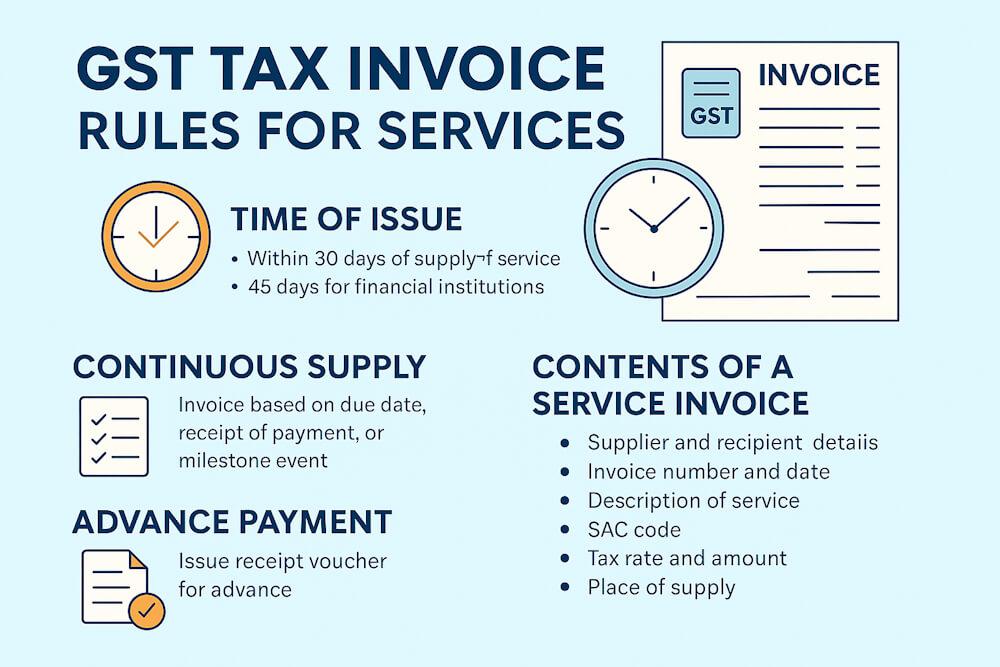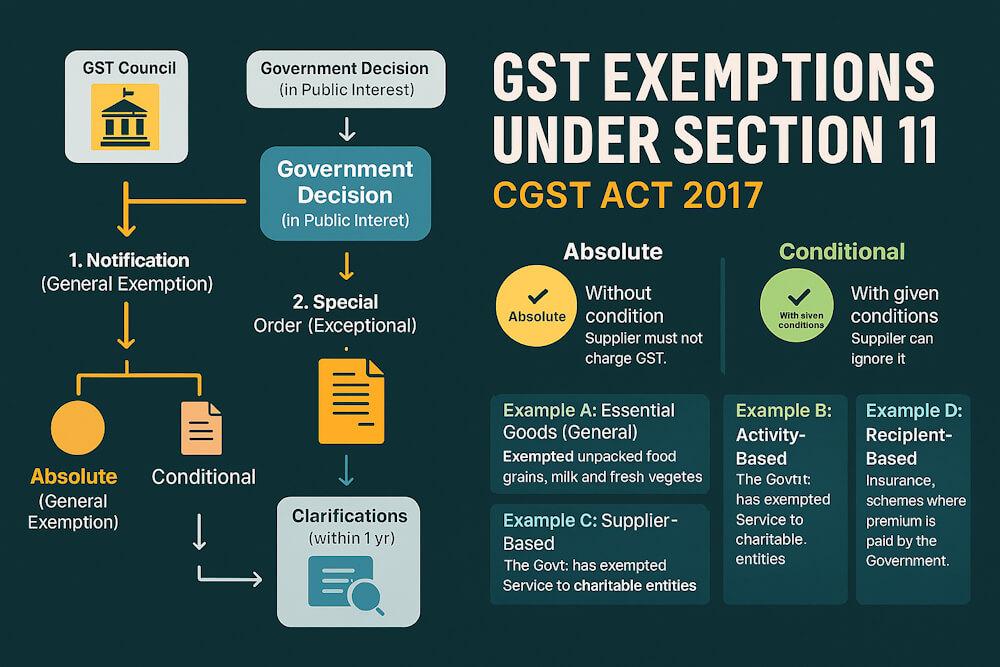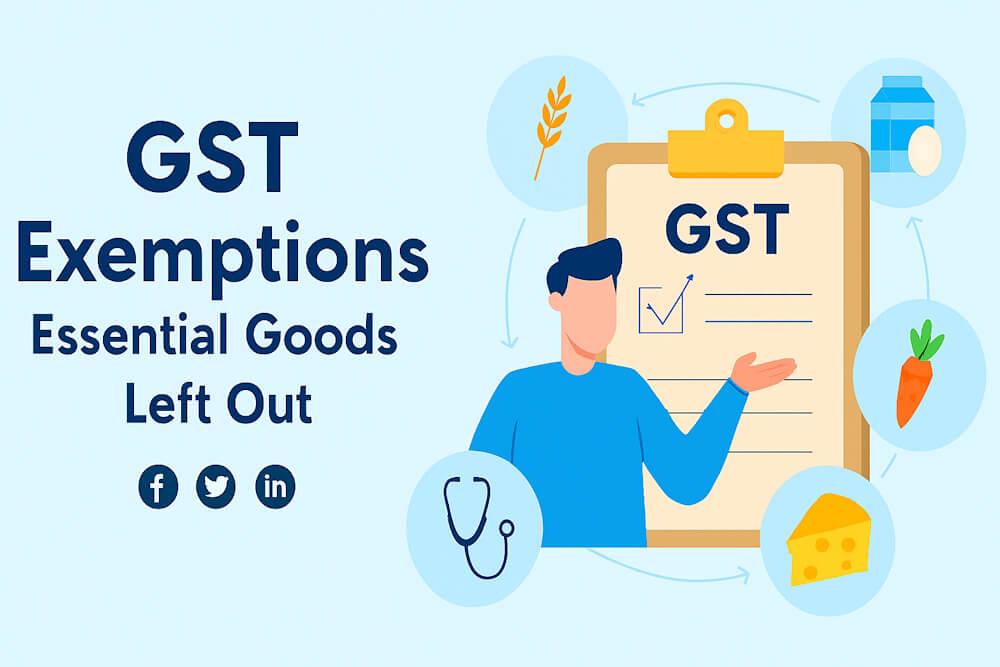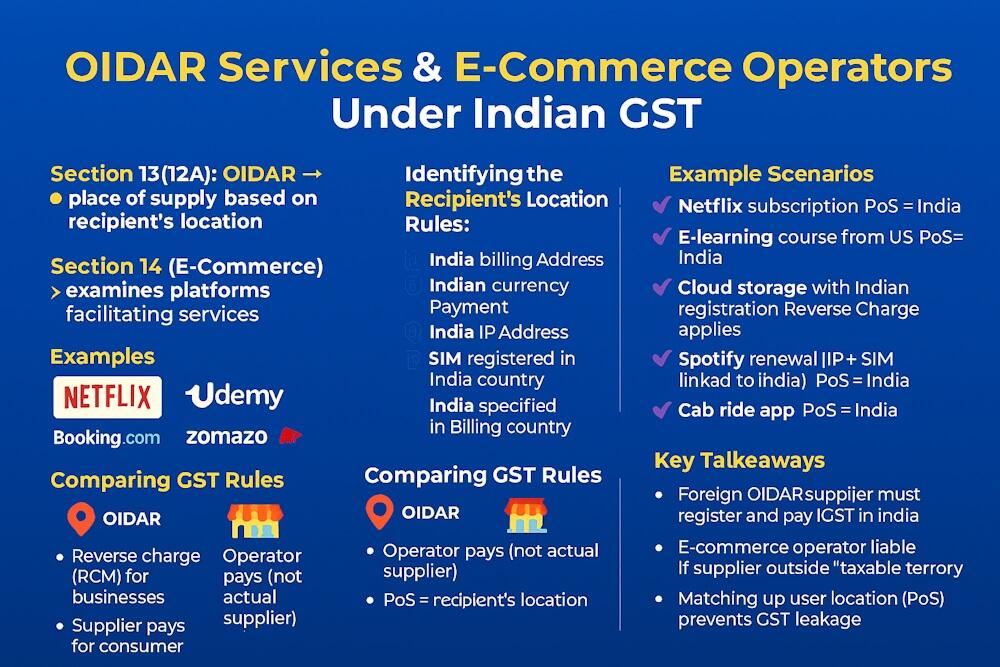When GST rolled out, people were panicking: “Wait, will they charge GST on literally everything we do? Like even our salaries or funerals?” Honestly, the fear wasn’t crazy, because the law around supply is so wide. But then the government added Schedule III to calm things down. It’s like the “don’t worry, this stuff is not supply” list.
And it’s super important. Because knowing what’s not supply saves you time, confusion, and in some cases, money. Let’s just walk through this list, but in plain language—not legal jargon.
1. Services by an Employee to Employer (in the Course of Employment)
First things first—your salary. Salary is not supply. If you’re working for a company and getting paid as per your job contract, GST has nothing to do with it.
👉 Example: You’re an accountant earning ₹50,000 per month. That salary is not a taxable supply.
But careful—if the employer gives you something outside your employment contract (like a Diwali gift worth more than ₹50,000), that could fall under Schedule I and become taxable. But the salary itself? Off the GST radar.
2. Services by Court or Tribunal
Then you’ve got courts and tribunals. If a judge delivers a judgment, it’s not a service being supplied. Same for tribunals. They’re not selling justice, they’re performing constitutional duties. Imagine paying GST on a court hearing—that would be bizarre.
Example: A High Court delivers a judgment. That’s not a taxable supply.
3. Duties Performed by Members of Parliament, Legislatures, Panchayats, Municipalities, etc.
And what about politicians and local body members? Same logic. If an MP goes to Parliament, votes, debates, or if a panchayat member attends a village meeting, none of that is taxable supply. They’re not service providers, they’re representatives carrying out constitutional functions.
Example: An MP attending Parliament sessions or an MLA voting on a bill. These are not services to be taxed.
4. Services of Funeral, Burial, Crematorium, Mortuary
One of the more sensitive ones on the list—funeral and burial services. Obviously, GST doesn’t touch this. Nobody is going to pay GST for arranging a cremation. These services are outside the scope of supply completely. It’s one of those things where the law had to be humane.
Example: A family arranging a cremation ceremony doesn’t have to think about GST.
5. Sale of Land and Sale of Completed Building
Next up—land and completed buildings. This one trips people up all the time. If you buy land, no GST. If you buy a ready-to-move-in flat, again no GST. But here’s the twist—if the property is under construction, then GST applies. Because construction is considered a service until the property is ready. So timing matters here.
Example: You buy a plot of land in Delhi. No GST.
Example: You buy a ready-to-move-in flat from someone. Again, no GST.
6. Actionable Claims (Other Than Lottery, Betting, Gambling)
Now comes this odd legal phrase—actionable claims. Basically, these are rights you can enforce in court, like debts or insurance claims. Those are excluded from GST. The exceptions? Lottery, betting, and gambling. Those are taxed. So if you win a lottery ticket, yes GST applies, but your regular insurance claim payout is safe.
👉 Example: An insurance payout is not supply under GST.
👉 Example: A claim on a debt owed to you is not supply.
7. Services by Government in Sovereign Capacity
Oh, and then there’s the government’s sovereign functions. Some activities governments perform because they’re governments, not because they’re selling a service. Like issuing passports, conducting elections, keeping law and order. None of that is supply. But if the government rents out property commercially, that’s supply and GST applies. See the difference? Sovereign vs commercial.
Why Schedule III Matters
Now why does this matter? Because people often overcomplicate things. Companies start asking if they should pay GST on salaries. Home buyers worry about GST on land purchases. Families wonder about GST on funerals. And the law is clear—don’t worry about it. Schedule III cuts out the noise.
Think of it this way: GST is like a big fishing net. But Schedule III pokes holes in it for stuff that shouldn’t be caught in the first place.
Final thought
Whenever you’re unsure, just ask: does this activity feel like a commercial transaction? If not, chances are it’s on this “not supply” list. Salaries, court duties, funerals, sale of land, government sovereign work—all excluded.
So the next time someone says, “Oh no, I think GST applies on this too,” check Schedule III. You might save yourself a lot of unnecessary stress.





